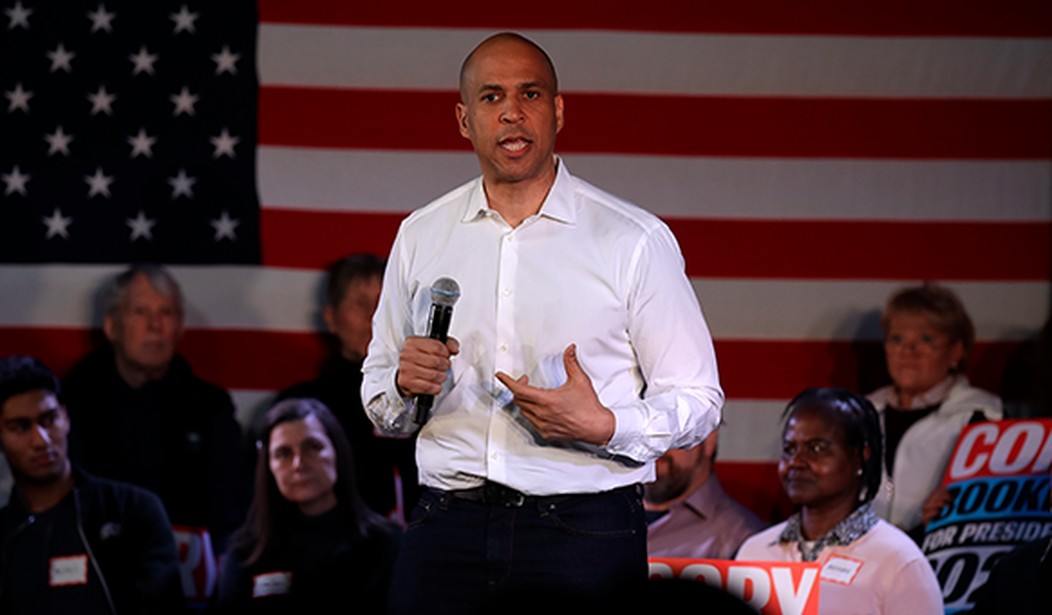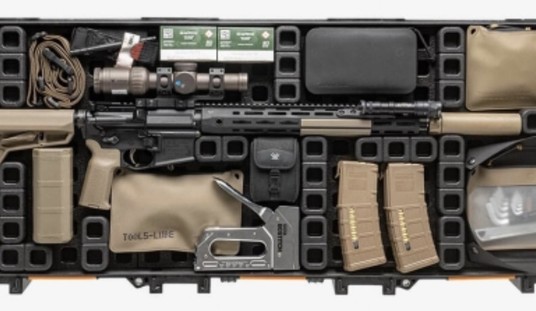AP Photo/Charles Krupa
Sen. Cory Booker has gotten a lot of attention lately due to his anti-gun proposal. If you tell someone that you expect them to get a license not just to buy firearms but to keep the ones they have you’re going to get some attention.
However, one thing some of us (looking squarely at myself here) missed was that his proposal didn’t stop there. No, he’s calling for a measure that would effectively ban new handgun models for the foreseeable future.
The list of gun control ideas that Cory Booker unveiled yesterday includes that hoary favorite, a ban on “assault weapons,” whatever those are. But it also included a less familiar proposal that would amount to a gun ban: “handgun microstamping.”
As the New Jersey senator and Democratic presidential contender explains, “Microstamping is technology that allows law enforcement to identify the source of ammunition used in crimes by making a shell casing traceable to the specific gun that fired the round.” The problem is that such technology has not been developed yet in any practical and cost-effective form. So when Booker promises he will “fight to require that microstamping technology be incorporated into new models of semi-automatic handguns sold in the United States,” he is actually promising a moratorium on new handgun models until that dream becomes a reality.
That is what happened in California, where a law that took effect in 2013 prohibits the sale of new handgun models unless they are “designed and equipped with a microscopic array of characters that identify the make, model, and serial number of the pistol, etched or otherwise imprinted in two or more places on the interior surface or internal working parts of the pistol, and that are transferred by imprinting on each cartridge case when the firearm is fired.” As Judge Jay Bybee noted when he dissented from a 2018 decision in which the U.S. Court of Appeals for the 9th Circuit upheld that mandate, complying with it does not seem to be feasible.
“So far as we can tell from the meager record before us, no one—including CDOJ [the California Department of Justice]—has ever tested any weapon against California’s protocol to see whether it is technologically feasible,” Bybee wrote. “The result of CDOJ’s restrictive testing protocol is undisputed: since at least 2013, no new handguns have been sold commercially in California.”
The thing is, I’m quite sure Booker sees this as a feature, not a bug.
Booker hails from New Jersey, a state that also has a demand for new firearm technology to exist. That state has a law on the books that will effectively ban all handgun models in the state the moment a smart gun becomes commercially viable.
So it’s not hard to believe that Booker buys into the idea that the government can mandate innovation.
However, the idea of microstamping is flawed from the start anyway.
You see, even if it could be made as a cost-effective technology, it won’t help the police as much as Booker might choose to believe.
The original purchaser of a firearm is rarely the person using it in a crime. The Department of Justice found that most guns being used by criminals were obtained illegally. As such, microstamping won’t do much to track down the firearms in question, except to know who the gun was likely stolen from in the first place.
In other words, Booker wants to ban new handgun models unless they use a technology that doesn’t exist and won’t help catch criminals in the first place.
Sounds like a winning strategy, doesn’t it?









Join the conversation as a VIP Member